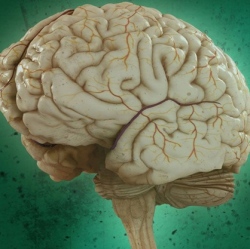
QBI researchers are a step closer to non-invasive treatment of Alzheimer’s disease, with the discovery that ultrasound enhances the effectiveness of immunotherapy in blasting away the plaque build-ups that are a hallmark of the disease. The research could make expensive treatments of Alzheimer’s much more cost-effective.
“The discovery is another promising step made by QBI researchers towards future therapeutic treatments for dementia,” said QBI Director, Professor Pankaj Sah.
“Excitingly, the research shows that ultrasound may also be a viable treatment for other disorders in which proteins aggregate in the brain – including Parkinson’s and motor neurone disease.”
Alzheimer’s disease is the most common form of dementia and affects more than 290,000 Australians. It is characterised by a build-up of proteins called beta-amyloid and tau, which are thought to destroy brain cells and cause symptoms such as memory loss and confusion.
Director of QBI’s Clem Jones Centre for Ageing Dementia Research (CJCADR) Professor Jürgen Götz and colleagues previously established that scanning ultrasound reversed Alzheimer’s symptoms and restored memory in mice.
The new research showed that ultrasound alone cleared toxic tau protein clumps, but combining ultrasound with an antibody treatment was more effective than either treatment alone in removing protein clumps and reducing Alzheimer’s symptoms in mice.
Ultrasound could vastly reduce cost of Alzheimer’s treatment
One line of research into Alzheimer’s treatment is the use of immunotherapy – delivering antibodies into the brain to target and destroy the toxic proteins deposits. One of the hurdles is that antibodies and other drugs need to first cross the blood-brain barrier, which by design is there to keep out foreign substances from the brain.
“With vaccination trials in dementia currently ongoing elsewhere, the problem is that only 0.1% of the therapeutic antibodies enter the brain, which would make a potential treatment for Alzheimer’s very costly,” said Professor Götz.
The QBI team found that ultrasound temporarily opens the blood-brain barrier, which increases the uptake of drugs or antibodies. This would reduce the number of expensive treatments needed to restore memory function.
The paper’s lead author, Dr Rebecca Nisbet, said antibody therapies could cost an estimated $25,000 to $100,000 per patient per year, and their research could drastically reduce the cost of these treatments.
The researchers are conducting ongoing work to translate the research into a safe therapy for patients in coming years, and in the meantime, patients are being advised to contact their doctors.
